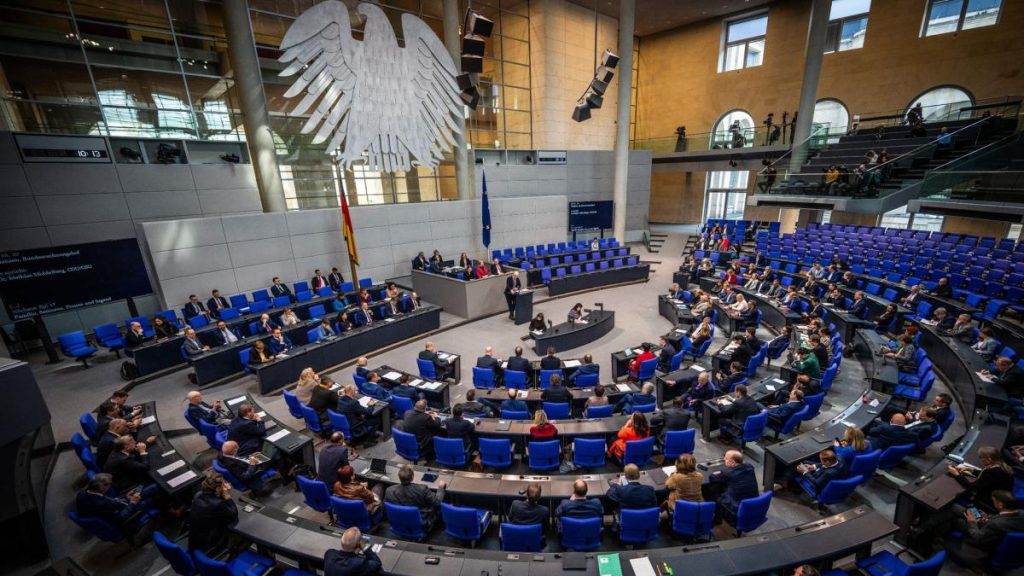Members of the Bundestag in Germany will see a record increase in their salaries, with a rise of six percent set to take effect in July. This means that they will receive over 11,000 Euros per month, an increase of 635.50 Euros from the previous amount. The increase is the largest in almost 28 years and is automatically tied to the general wage development. The adjustment is based on the nominal wage index, which is measured by the Federal Statistical Office.
The 734 members of the Bundestag will see their salaries increase by six percent in July, bringing their monthly pay to 11,227.20 Euros. This information was announced by Bundestag president Bärbel Bas of the SPD, following the development of nominal wages last year which saw a six percent increase. This increase also applies to pensions. The adjustment is made annually on July 1st, with the salaries having increased by 2.6 percent the previous year. The Bundestag is not required to vote on the increase, as the automatic transfer of wage increases to parliamentarians was agreed upon at the beginning of the legislative period.
Criticism of the expected salary increase came from the Taxpayers’ Association in February, with President Reiner Holznagel calling for the abolition of the automatic adjustment of parliamentarians’ salaries. He described the system as undemocratic and stated that such a high increase had not been seen since 1995. The Left party also criticized the salary increase, with party leader Janine Wissler pointing out that it was the highest in nearly 30 years, especially during a time when discussions about cuts to social benefits were ongoing. The Bundestag has the authority to decide against the increase, as was done in 2020 during the COVID-19 pandemic.
The adjustment of parliamentarians’ salaries to the general wage development is a regular process outlined in the Abgeordnetengesetz (Members of Parliament Act). The system ensures that the salaries of members of the Bundestag are linked to changes in the nominal wage index measured by the Federal Statistical Office. The automatic increase in salaries is a result of the decision made by parliamentarians to approve the transfer of wage adjustments to themselves at the beginning of the legislative period. The system allows for adjustments to be made annually on July 1st, with the salaries having increased by 2.6 percent the previous year.
The significant increase in salaries for members of the Bundestag has sparked criticism from various quarters, including the Taxpayers’ Association and the Left party. The critics have called for an end to the automatic adjustment of parliamentarians’ salaries, citing concerns about the democratic process and the timing of such an increase. The increase, the highest in almost 30 years, comes at a time when discussions about social benefit cuts are ongoing. Despite the criticism, the Bundestag is not required to vote on the salary increase, as it was agreed upon at the beginning of the legislative period.















